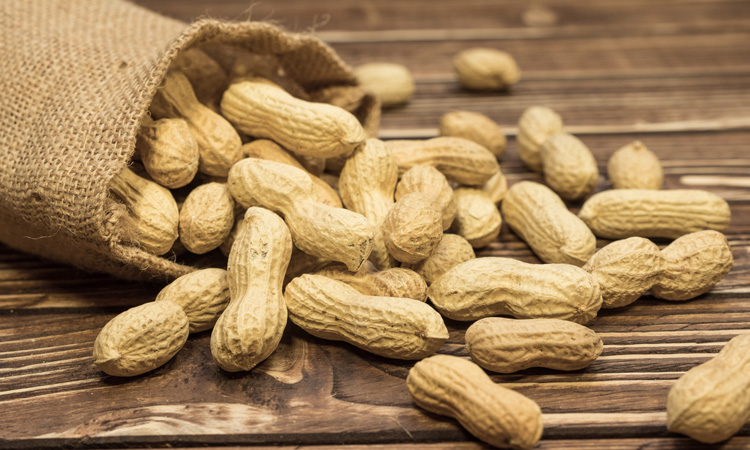US study suggests oral immunotherapy might halt peanut allergies
- Like
- Digg
- Del
- Tumblr
- VKontakte
- Buffer
- Love This
- Odnoklassniki
- Meneame
- Blogger
- Amazon
- Yahoo Mail
- Gmail
- AOL
- Newsvine
- HackerNews
- Evernote
- MySpace
- Mail.ru
- Viadeo
- Line
- Comments
- Yummly
- SMS
- Viber
- Telegram
- Subscribe
- Skype
- Facebook Messenger
- Kakao
- LiveJournal
- Yammer
- Edgar
- Fintel
- Mix
- Instapaper
- Copy Link
Posted: 24 January 2022 | New Food Magazine | No comments yet
A medical trial in the US has found that peanut oral immunotherapy can desensitise and induce remission in many children under the age of four who suffer from peanut allergies.


A clinical trial funded by the National Institutes of Health in the US has found that giving peanut oral immunotherapy to highly peanut-allergic children ages one to three safely desensitised most of them to peanut and induced remission in many.
Oral immunotherapy is a type of allergy treatment that gradually exposes the patient to the source of the allergy to build a tolerance. This treatment is a type of desensitising therapy that uses small doses of the allergen to reduce the degree of a severe allergic reaction. The immunotherapy in this study consisted of a daily oral dose of peanut flour for two and a half years.
Remission was defined as being able to eat five grams of peanut protein without having an allergic reaction six months after completing immunotherapy. The results of the trial, called IMPACT, were published in The Lancet.
The experiment found that giving peanut oral immunotherapy to highly peanut-allergic children ages one to three years safely desensitised over 70 percent of them to peanut and induced remission of peanut allergy in one-fifth.
“The landmark results of the IMPACT trial suggest a window of opportunity in early childhood to induce remission of peanut allergy through oral immunotherapy,” said Anthony S. Fauci, M.D., director of the National Institute of Allergy and Infectious Diseases which sponsored the trail.
“It is our hope that these study findings will inform the development of treatment modalities that reduce the burden of peanut allergy in children.”
Peanut allergy affects nearly 1.5 million individuals ages 17 years and younger in the US. The risk of a life-threatening allergic reaction to accidentally eaten peanut is significant for these children, most of whom remain peanut-allergic for life.
When designing the study, the IMPACT trial investigators reasoned that because oral immunotherapy has the potential to change the immune system, providing peanut oral immunotherapy early in life, when the immune system is still maturing, might modify a child’s immune response to peanut. Two previous studies provided proof of concept that peanut oral immunotherapy could be given safely to very young children and have a therapeutic effect.
Nearly 150 children aged one to three years participated in the IMPACT trial at five academic medical centres in the US. Only children who had an allergic reaction after eating half a gram of peanut protein or less were eligible to join the study. The children were assigned at random to receive either flour containing peanut protein or a placebo flour of similar appearance. No one except a site pharmacist and a site dietician knew who received peanut flour or placebo flour until all the data were gathered and study visits had ended.
At the end of the treatment period, 71 percent of children who had received peanut flour were desensitised to peanut, compared to only two percent of those who had received the placebo flour.
In an analysis done after the investigators could view the study data, they found an inverse relationship between age at the start of the trial and remission, with 71 percent of the one-year-olds, 35 percent of the two-year-olds and 19 percent of the three-year-olds experiencing remission.
Similar studies in the past have shown that exposing children with peanut allergies to the product may stop allergic reactions.
Related topics
Allergens, Food Safety, Lab techniques, Research & development
Related organisations
National Institute of Allergy and Infectious Diseases, National Institutes of Health, The Lancet








